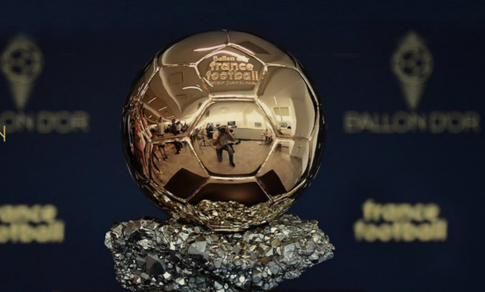The Ballon d'Or is heralded as the pinnacle of individual achievement in football, intended to recognize the best player in the world each year. However, many players have felt the sting of being overlooked despite their remarkable accomplishments. Some stars have been denied the prestigious award multiple times, often feeling as though it was taken from them in favour of other candidates. This article explores notable players who are frequently cited as having been "robbed" of their rightful recognition.
Thierry Henry is one such player who experienced the disappointment of losing the Ballon d'Or twice in succession. In 2003, the award went to Pavel Nedved, who played a pivotal role in leading Juventus to the Serie A title and the Champions League final.
However, Henry, then with Arsenal, delivered a season of extraordinary stats, netting 24 goals and assisting another 25. His remarkable contributions not only earned Arsenal an FA Cup victory but also solidified his status as a key player in English football history. Many argue that Henry's individual brilliance far surpassed that of Nedved, making his absence from the award a significant oversight.
Virgil van Dijk's case in 2019 also stirred controversy among fans and analysts alike. After joining Liverpool, he quickly established himself as a dominant force in defense, helping transform the team into a trophy-winning machine under Jurgen Klopp. Van Dijk’s contributions during the 2018/19 season included starting all 50 of Liverpool’s games and scoring 10 goals, culminating in a Champions League triumph. Despite this, he finished second to Lionel Messi in the Ballon d'Or voting, a decision influenced by Messi's performance in the semi-finals against Liverpool, further fueling the debate over how the award is determined.
Wesley Sneijder's omission in 2010 serves as another prime example of a player overlooked during the “Messi era.” That year, despite leading Inter Milan to a historic treble and showcasing stellar performances in the Champions League, Sneijder found himself overshadowed by Messi’s remarkable goal tally. Sneijder not only excelled with Inter but also starred for the Netherlands at the World Cup, finishing as a co-top scorer and guiding his national team to the finals. Yet, despite his pivotal role in both club and international success, he was passed over for the Ballon d'Or.
Erling Haaland faced a similar fate in 2023 after an astonishing season with Manchester City. The Norwegian striker scored 52 goals across all competitions, leading City to a historic treble and their first Champions League title. However, the accolade went to Messi, who had recently led Argentina to a World Cup victory. Many felt Haaland's record-breaking performance deserved recognition, but the narrative surrounding Messi's international success ultimately overshadowed his achievements, illustrating the complexities of the award’s selection process.
Robert Lewandowski's experiences in 2020 and 2021 also highlight the controversies surrounding the Ballon d'Or. After a record-breaking season in 2020 where he scored 55 goals and led Bayern Munich to an unprecedented treble, the award was controversially canceled due to the pandemic. In 2021, Lewandowski continued his exceptional form, breaking Gerd Müller’s long-standing record with 41 goals in the Bundesliga.
However, once again, he found himself watching from the sidelines as Messi accepted the award, with Messi himself acknowledging Lewandowski's deserving claim in his acceptance speech. This string of events exemplifies the frustrations and disappointments faced by players who have made indelible marks on the sport yet were denied its highest individual honor.








ADD A COMMENT :